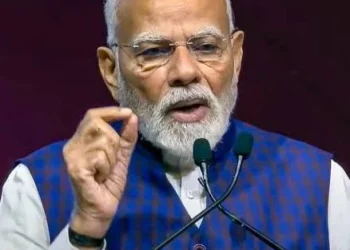In Hasdeo Arand, consent was allegedly manufactured to hand over tribal lands to coal giants. In Ecuador, the people voted to preserve the rainforest. This contrast exposes a crisis of consent in India’s tribal heartlands.
By Navin Upadhyay
In August 2023, Ecuador made history. Voters overwhelmingly backed a referendum to ban oil drilling in the Yasuní National Park, one of the world’s most biodiverse regions and home to uncontacted Indigenous tribes. This was more than an environmental victory—it was a democratic statement. For the first time, citizens of a nation directly voted to halt extractive activities in a protected forest. The result wasn’t just about trees and oil; it was about the rights of Indigenous peoples, democratic decision-making, and national integrity.
Now contrast that with India.
In the central Indian state of Chhattisgarh, tribal communities in Hasdeo Arand have been resisting coal mining projects for years—particularly those granted to Adani Enterprises. The key difference? There was no referendum. Instead, the government claimed to have secured consent from local Gram Sabhas (village councils), but multiple reports and investigations alleged this consent was forged, coerced, or secured through bribery and misinformation.
This stark difference in democratic process—referendum vs. manipulated consent—raises uncomfortable but necessary questions for India.
Referendum vs. Gram Sabha Consent: A Broken Tool?
India’s Panchayats (Extension to Scheduled Areas) Act (PESA) and the Forest Rights Act (FRA) are progressive in principle. Both mandate Gram Sabha consent before tribal lands can be diverted for commercial projects. However, in practice, this consent is often a sham—routinely forged, manipulated, or secured through coercion or inducement. The situation is no different in the Northeast, where Autonomous Hill Councils and Territorial Councils, established to protect tribal autonomy, frequently find themselves sidelined or co-opted when it comes to land acquisition and resource exploitation. Instead of empowering tribal communities, these structures are increasingly reduced to rubber stamps in the face of powerful corporate and state interests.
READ: Manipur’s Deadly Clash: Unraveling the UKNA–CKMA Bloodshed
In Chhattisgarh Hasdeo, tribal villagers alleged that signatures were forged on official documents showing consent to open coal blocks. RTI activists and journalists revealed discrepancies—some Gram Sabha meetings were never held, while others had resolutions typed in English, a language villagers couldn’t read.
The Mega Tribal Land Grab (2): How Adivasi Fight a Losing battle in Chhattisgarh #NoConsentNoMining #HasdeoBachao #AdaniCoalConflict #AdivasiLivesMatter @paranjoygt @TribalArmy @bhupeshbaghel @pbhushan1
https://t.co/NJFxr8Kiy9— POWER CORRIDORS (@power_corridors) July 11, 2025
Even India’s former Environment Minister Jairam Ramesh once admitted that forest clearances were being issued in violation of these laws, and that corporate interests often subverted local democracy. The truth is: Gram Sabha consent has become a loophole, not a safeguard.
Compare that with Ecuador’s model: a nationwide referendum, where every citizen—not just those living near the forest—was asked to vote on the future of the Amazon. That vote became an expression of national conscience and environmental stewardship. And despite pressure from oil companies and economic arguments, the people chose protection over profit.
READ: Was Dhankhar Pushed Out? His Silence Speaks of The Knives Aimed at Him
India has the world’s second-largest tribal population—over 100 million people who live in or around forested areas. For decades, their lands have been systematically taken over for mines, dams, highways, and industrial corridors, often under the pretext of national development.
Yet, tribal regions remain the most impoverished. Basic health, education, and employment indicators lag far behind the national average. What this reveals is that extractive development doesn’t lift tribal communities—it exploits and displaces them.
Learning from Yasuní: Could Referendums Work in India?
Skeptics will argue that India is too large and complex to hold referendums on forest issues. But that misses the point. The Yasuní referendum is not just a tool—it’s a symbol of democratic accountability. India doesn’t need nationwide votes for every forest project, but it does need robust, transparent, and community-controlled mechanisms for decision-making.
Some key lessons from Ecuador:
- Democratize decisions about land and resources, especially those involving vulnerable communities.
- Ensure informed consent is actually informed—provided in local languages, in accessible formats, and free from coercion.
- Recognize that economic growth cannot come at the cost of democratic erosion and ecological collapse.
India must recognize that its tribal communities are not “obstacles” to development—they are guardians of its forests, rivers, and biodiversity. Instead of bypassing or bribing Gram Sabhas, the government must invest in empowering them—through capacity building, legal literacy, and independent oversight.
If Ecuador, a developing country with economic dependence on oil, can take the bold step to let its people vote on resource extraction in a protected Indigenous area, why can’t India reimagine its consent mechanisms to reflect true democracy?
Hasdeo’s forests and Yasuní’s rainforests are continents apart—but the fight is the same: a battle for dignity, for self-determination, and for the right to say “no” to destruction.













